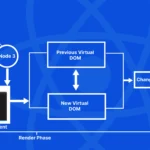Exploring the Role of Technology in Revolutionizing Online Learning
Online learning is a form of education that is rapidly gaining ground in the digital world. With the recent advancements in technology, offline education has started transitioning into online platforms. The role of technology in revolutionizing online learning cannot be overemphasized. Technology has enabled personalized and interactive learning, created innovative e-learning tools and platforms, and introduced gamification and the use of virtual and augmented reality in online learning. In this blog post, we will explore the impact of technology in online learning and tutorials, and how it has transformed the learning environment.
The Impact of Technology on Online Learning
Technology has had a tremendous impact on the world of education, particularly in the online learning space and online tutoring. With traditional offline learning environments, education was confined to the physical space of a classroom, but technology has expanded the learning environment boundaries. This has created opportunities for institutions to expand their reach and provide education to people all over the world. Technology has enhanced the learning experience beyond textbooks and other written learning materials.
One of the key benefits of incorporating technology into online learning is the ability to make education accessible to more people. As for online tutorials, they offer a comprehensive view of the benefits technology brings to education. The best online tutoring adopts an interactive learning style, enabling learners to gain practical insights into the latest digital tools and platforms available for online learning.
Online learning platforms offer various learning opportunities for people who may not be able to attend traditional brick-and-mortar educational institutions. This has resulted in a surge of online learning platforms, with institutions like Harvard, Yale, and MIT also offering online courses via e-learning platforms. Popular e-learning platforms include Coursera, Udemy, Khan Academy, edX, and much more.
Innovative Tools and Platforms
Numerous online learning tools have been developed and adopted due to the impact of technology on online learning. E-learning tools like Learning Management Systems (LMS), Massive Open Online Courses (MOOCs), and simulation and interactive tools are just a few examples.
Learning management systems are e-learning platforms designed to enable educational institutions to administer online courses and track student progress. One of the most popular learning management systems is Blackboard, and many educational institutions have adopted it as their online learning platform. MOOCs are instructional materials available on the internet for free. They are not always accredited and may not offer certification of completion. MOOCs are a great option for self-paced learning and for those who are just exploring new topics or personal interests.
Simulation tools are software applications used to represent real-life scenarios visually and interactively. Simulation tools can be used in various learning environments to offer students hands-on experience. For example, medical schools use simulators for medical procedures to give students practical experience in a safe learning environment.
Gamification in Online Learning
Gamification is a process of using gaming elements to enhance learning. It involves using game design elements like point-scoring, rewards, and competitions to create a more engaging learning experience. Gamification is a trend that has been gaining popularity in recent years due to its ability to make learning fun and interactive.
Gamification can be used in different ways, even beyond playful means. For example, financial institutions are using gamification to help clients learn financial literacy. The clients are awarded points for answering questions correctly, reading articles, or watching videos that are geared toward financial literacy.
Virtual and Augmented Reality in Online Learning
Virtual reality (VR) is a simulated three-dimensional experience created by computer graphics to create a fully immersive environment. Augmented Reality (AR), on the other hand, combines digital components with real-life objects to create a hybrid reality. VR and AR have been used as educational tools in recent years. VR and AR are commonly used in travel and tourism, health education, and even engineering.
Personalization in Online Learning
Personalization is a key feature of online learning that has been made possible through technology. Personalized learning involves modifying teaching methods, learning content, and assessment methods while considering a student’s learning style, interests, and strengths.
For instance, a medical receptionist course available on platforms can utilize personalized learning techniques to cater to the individual needs of students. By using algorithms and artificial intelligence, this online course can analyze the performance data of each student and generate recommendations specifically tailored to their learning requirements. Whether a student needs additional practice in medical terminology or guidance in patient scheduling, the course content can be personalized to address their unique areas of improvement. This personalized approach ensures that students receive the support they need to succeed, leading to a more effective and fulfilling online learning experience.
Conclusion
This blog post explored the impact of technology on online learning and tutorials. The use of technology has revolutionized education delivery, creating new opportunities for people worldwide to access education. Technology has also created innovative e-learning tools and platforms and introduced gamification and the use of virtual and augmented reality in online learning. Personalization is another key feature of online learning made possible through technology. Students today have a vast array of tools at their disposal to enhance their learning experience. As technology continuously improves, the horizon of opportunities can only get wider. It’s imperative to remain up to date with the latest trends and innovations to embrace technology advancements for more robust e-learning experiences.




















